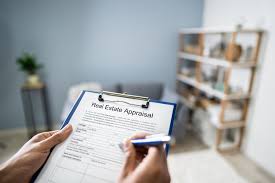Real estate appraisers play a crucial role in the property market by providing unbiased assessments of property values. However, navigating the legal landscape is essential for appraisers to ensure compliance with regulations and mitigate the risk of legal issues. This guide will explore seven key legal considerations that every real estate appraiser should be aware of to perform their duties effectively and ethically. From understanding appraisal standards to avoiding conflicts of interest, appraisers must be well-informed about the legal aspects of their profession to maintain integrity and professionalism.
1. Compliance with Uniform Standards of Professional Appraisal Practice (USPAP)
The USPAP is the industry standard for real estate appraisal in the United States, outlining ethical and professional standards that appraisers must adhere to. Please familiarize yourself with the latest version of the USPAP and ensure compliance with its requirements in all aspects of your appraisal practice. Understand the ethical obligations outlined in the USPAP, including confidentiality, objectivity, and impartiality, and incorporate them into your appraisal process. By adhering to USPAP standards, you’ll uphold the integrity of your appraisals and minimize the risk of legal issues or disciplinary action.
2. Understanding State and Federal Regulations
In addition to USPAP, real estate appraisers must comply with state and federal regulations governing their profession. Familiarize yourself with the specific laws and regulations applicable in your state, including licensing requirements, disclosure obligations, and professional standards. Stay updated on any changes or updates to state and federal regulations that can impact your appraisal practice. By understanding and adhering to relevant regulations, you’ll ensure legal compliance and maintain your credibility as a real estate appraiser.
3. Avoiding Conflicts of Interest
Conflicts of interest can undermine the integrity and credibility of real estate appraisals, leading to legal repercussions and professional sanctions. Avoid situations where your independence or impartiality can be compromised, such as appraising properties owned by friends, family members, or business associates. Disclose any potential conflicts of interest to clients or stakeholders upfront and take appropriate measures to mitigate them. By maintaining objectivity and transparency in your appraisal practice, you’ll minimize the risk of legal challenges and uphold the integrity of your work.
4. Accurate and Transparent Reporting
Accurate and transparent reporting is essential for real estate appraisers to convey their findings effectively and mitigate the risk of legal disputes. Ensure that your appraisal reports are comprehensive, well-documented, and free from errors or inconsistencies. Provide clear explanations of your valuation methodology, assumptions, and any factors that can have influenced your appraisal. Use objective language and avoid making misleading statements or omitting relevant information. By producing accurate and transparent appraisal reports, you’ll enhance the credibility of your work and reduce the likelihood of legal challenges.
5. Understanding Fair Housing Laws
To make sure everyone is treated fairly, real estate appraisers have to follow fair housing legislation. Read up on fair housing legislation at the federal and state levels. The Fair Housing Act, for example, forbids discrimination based on race, color, religion, sex, handicap, family status, or national origin. Avoid using discriminatory practices or factors in your appraisals, such as relying on demographic data or neighborhood characteristics to determine property values. By understanding and adhering to fair housing laws, you’ll promote fairness and equality in the appraisal process and minimize the risk of legal liability.
6. Professional Liability Insurance
Professional liability insurance is a critical safeguard for real estate appraisers, especially those involved in the commercial real estate appraisal process. This insurance coverage protects appraisers in the event of claims alleging errors, omissions, or negligence in their appraisal reports. With the complexity and high stakes involved in commercial real estate transactions, having professional liability insurance provides appraisers with peace of mind and financial protection. It ensures that appraisers can defend themselves against legal challenges and potential lawsuits, preserving their professional reputation and financial well-being. By obtaining professional liability insurance, real estate appraisers demonstrate their commitment to upholding industry standards and providing accurate and reliable valuation services to their clients.
7. Continuing Education and Professional Development
Staying informed about changes and developments in the real estate appraisal profession is essential for maintaining competency and legal compliance. Participate in continuing education programs, workshops, and seminars to stay updated on industry trends, regulatory changes, and best practices. Stay informed about advancements in appraisal technology, methodologies, and tools that can impact your appraisal practice. By investing in continuing education and professional development, you’ll enhance your knowledge and skills as a real estate appraiser and reduce the risk of legal issues or disciplinary action.
Conclusion
Real estate appraisers must be well-versed in the legal considerations that govern their profession to ensure compliance and mitigate the risk of legal issues. By understanding and adhering to standards such as USPAP, state and federal regulations, and fair housing laws, appraisers can uphold integrity and professionalism in their appraisal practice. Additionally, appraisers should take proactive measures to avoid conflicts of interest, produce accurate and transparent appraisal reports, secure professional liability insurance, and invest in continuing education to stay updated on industry developments. By prioritizing legal compliance and ethical conduct, real estate appraisers can protect themselves and their clients while maintaining credibility and trust in the appraisal profession.

